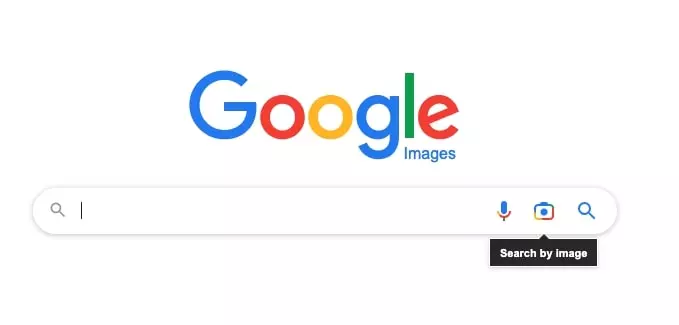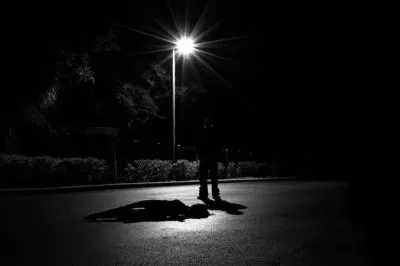
- Originally Published on December 11, 2022
How to File a Revenge Porn Lawsuit
Discovering private, intimate images of yourself online is always a shock. Whether the images were hacked from your phone or uploaded by a jealous ex, if the images were published without your consent, they constitute revenge porn.
Many of our clients in this situation ask us if they can sue the porn site to get these images taken down. The answer is usually no—but you may be able to file a revenge porn lawsuit against the individual who posted them. You may have the option to file a criminal report or civil lawsuit against the perpetrator.
At Minc Law, we have experience helping clients like you fight back against online harassment and sexual exploitation. Whether it means working with websites to remove the offending content, or filing a lawsuit on your behalf, we can help.
In this article, we discuss what constitutes revenge porn and how to remove it from the internet without a lawsuit. Then, we explain how to file a revenge porn lawsuit and what to expect from the process.
You have the right to have the content removed and take action against those who have wronged you. Reach out to us today for a confidential consultation with an intake specialist.Are you the target of revenge porn?
What is Considered Revenge Porn?
It is estimated that 1 in 12 adults in the U.S. is a victim of image-based abuse. The most at-risk groups for being victimized by revenge porn are young adults aged 18-29, people of color, and those in the LGBTQ+ community. In fact, 17% of LGBTQ+ internet users report that they have been threatened with or victimized by revenge porn.
Revenge porn, formally referred to as “nonconsensual pornography,” is the distribution of intimate images without the subject’s consent.
These images could be hacked from your device or cloud, or they could be images you shared voluntarily but did not give permission to be shared publicly. No matter the circumstances of how the perpetrator obtained the images, if they share them without your consent, that act constitutes revenge pornography.
The term may imply that revenge porn is always motivated by revenge or malicious intent, but that does not have to be the case. In fact, many cases of nonconsensual pornography are perpetrated by complete strangers.
Some perpetrators post these explicit images to revenge porn websites and social media. If that is the case, there are a few ways you can have these photos or videos removed. You may also wish to file a criminal complaint or civil lawsuit against the perpetrator.
What Types of Content Are Considered Revenge Porn?
While not every case of revenge porn is perpetrated by a spurned ex-partner, there is always a malicious motive underlying the act of publishing the content. Below, we provide a few common examples of revenge porn.
Nonconsensual Publication & Sharing of Confidential Sexts
Say you are texting with a crush. The conversation eventually turns flirtatious, then explicit. You eventually decide to send a few nude selfies, believing that these selfies will stay confidential and private between you and your crush.
Later, you find out that your crush posted the photos on several pornography sites without your knowledge.
You willingly shared these intimate images—but only with your crush. However, there was an expectation of privacy and confidentiality concerning the use of the photos. You did not give permission for them to share the images with anyone else (let alone post them online for the world to see).
This scenario would absolutely qualify as revenge porn. And unfortunately, this problem is much too common among teenagers. According to one study, an estimated 12% of teens have forwarded sexts and explicit photos without the consent of the individual in the photo.
Hacked Private Nudes & Intimate Selfies
You took a few nude photos of yourself, thinking you would send them to your romantic partner. You lost your nerve and never ended up sending them—but you kept the photos on your phone.
One day, you receive an anonymous, threatening email claiming that there are nudes of you online. The message links to the images, which are the same nude selfies you took but never sent!
Your phone’s cloud account was hacked, and the hacker posted the photos online in hopes that you would pay money to take them down. This type of sextortion is on the rise; an estimated 43% of revenge porn victims report that their devices or cloud accounts were hacked.
Video: Help! My Nudes Are on the Internet – How Do I Remove Them?

Nonconsensual Publication of Intimate Images on Shaming & Revenge Pornography Websites
You and your spouse have been growing apart lately. You have become close with a work colleague—and lately, you two have been sending each other flirtatious and occasionally intimate texts. One night while you are in the bathroom, your spouse discovers these sexts on your phone.
They become enraged and quickly forward the images to their own phone. In their jealousy, your spouse posts these compromising photos and texts on shaming, cheater, and revenge porn sites.
What is Not Considered Revenge Porn?
Not every case of publicly shared intimate images constitutes revenge porn. The following examples do not fit the definition of revenge pornography:
Consensual Paid Pornography
When you were younger, you decided to model or participate in adult films. Now that you have children of your own, you are worried that your kids might run across those images one day.
Because you gave permission to that pornography site to display those photos, this situation does not constitute revenge porn. However, you may still have some options to remove or suppress those images.
Authorized Use or Release of Photos
You commissioned a large and intricate tattoo on your upper thigh. The tattoo turned out well, and the artist asked if they could take a picture to show other potential clients. You sign a form giving the tattoo studio permission to use the image.
Now, however, you see that photo online and on the tattoo studio’s advertising materials. Even though the photo does not show your face or anything overtly explicit, everyone in your small town knows it is a picture of your naked upper thigh and hip. You are worried that this incident might impact your future career opportunities.
Unfortunately, this scenario does not qualify as nonconsensual pornography since you gave written permission for the studio to use the image for advertising purposes.
What Are the Potential Harms of Your Intimate Media Being Posted on a Porn Website?
Revenge porn can affect anyone, but the majority of victims are female or LGBTQ+. Like other sexual crimes such as sexual harassment, domestic violence, and sexual assault, revenge porn disproportionately affects women and girls.
According to a 2016 Center for Innovative Public Health Research study examining the prevalence of nonconsensual image sharing, young women in particular are most likely to be victimized, with an estimated one in ten women under the age of 30 having experienced threats of nonconsensual media sharing.
Further, 17% of LGBTQ+ internet users reported having either an image shared without their consent or being threatened with nonconsensual distribution of their private media. The nonconsensual sharing or publication of intimate media may be especially damaging in cases where the victim has not come out about their sexuality.
Revenge porn or nonconsensual pornography is often a tool of domestic abusers. These perpetrators hold explicit pictures over their partners’ heads as a way to stop them from leaving the relationship or reporting abuse. Sex traffickers also commonly use the threat of publishing intimate images as a way to keep their victims under control.
Revenge porn may have catastrophic consequences for your personal and professional life. This outcome is not fair and should not be the case, as revenge porn is a crime and the victim has done nothing wrong. Victims of nonconsensual pornography are sometimes threatened, stalked, and harassed. Many victims of revenge porn suffer from depression, anxiety, and suicidal thoughts or actions.
Video: What to Do If You Did Porn & Now Want it Removed

If you are experiencing thoughts of self-harm, know that you are not alone. Please reach out to the Cyber Civil Rights Initiative hotline at 844-878-CCRI (2274) for support, referrals, and non-legal advice. Or, you can call 988 across the U.S. to reach the Suicide and Crisis lifeline.
Steps to Remove Intimate Photos or Videos From a Porn Website
If someone has posted intimate images of you on a pornographic website, remember: this is not your fault. Take a deep breath and try not to panic.
After gathering your thoughts, your first step should be to save copies of the content. It may feel counterintuitive, but the more evidence you have, the easier it will be to obtain legal relief. After all, the perpetrator may delete the content before you are able to bring them to justice.
Take screenshots, print the image(s), or save them to your hard drive or a flash drive. And if the perpetrator sent you messages, save copies of these conversations as well.
What You Should Do If You Were Underage in the Intimate Photos or Videos
In cases where you were underage when the photo or media was taken, this constitutes child pornography. In this situation, you should not preserve the actual photos because this may be construed as possession of child pornography. Instead, preserve a record of where the intimate media is posted, if you were hacked, and any data associated with this breach (ex. Snapchat data).
Next, contact a criminal attorney to evaluate any potential criminal repercussions for the perpetrator. Child pornography laws may vary by state, so it is generally recommended to check with an experienced criminal attorney in your state first. We may then be able to assist with the removal of the content.
How to Identify Everywhere Your Intimate Images & Videos Are Posted
Unfortunately, because of the vast nature of the internet, if you discover one website where your content is posted, chances are there are more postings out there. You can use the following tips to find everywhere your intimate content exists online:
1. Conduct a Reverse Image Search
The easiest way to find out where the image came from is to use Google’s Reverse Image Search tool. From your computer or mobile device, right-click or long-press on the explicit photo and click “copy image.”
Then, navigate to Google Images and click “search by image.”

Paste the image you copied into the search bar. The search results will display all the websites that contain that image.
2. Navigate Popular Adult Sites
You can also go straight to the main sources of pornographic content to see if your images have been posted to any of these platforms. Many adult websites and platforms see a ripple effect where after a video or image is posted, it is quickly copied and published across countless other sites.
A few sites where users commonly post adult content include:
- PornHub,
- XHamster.com,
- RedTube,
- Tumblr,
- Reddit, and
- Twitter.
However, be careful not to search your own name too often on these sites. The more you and other users search your name, the more likely it will appear on the site’s search tags. The porn sites may begin showing up in search results for your name, even if your content is not posted on the platform.
Once you have the URL for the platform(s) that contain the explicit images, you can use sites like Who is Hosting This or DomainTools to look up the platform’s hosting provider. This information will be helpful in getting the image removed or pursuing legal action against the perpetrator.
3. Subscribe to an Image Recognition Service
If you are worried about intimate images or videos of you being posted online, you may also want to purchase a facial or image recognition service like PimEyes. These tools use machine learning and advanced facial recognition technology to search for your images online and alert you of any matches.
Report the Content to the Porn Website
The fastest way to remove revenge porn from the internet is to report it for violating the website’s Terms of Service. Of course, the probability of your success depends on whether the site in question monitors and moderates its content.
Mainstream social media sites like Twitter and Instagram tend to be easier to work with than a revenge porn or shaming website whose primary purpose is to provide a forum for distributing unlawful content. These websites tend to operate overseas or otherwise obscure the identity and location of their owners to avoid prosecution.
And some sites require you to pay a processing fee for them to take any action on your behalf. These fees are certainly unethical, if not outright unlawful. Consult with an attorney to discuss your options if this is the only way to achieve removal.
Google Revenge Porn Notice
Search engines like Google and Bing allow users to report nonconsensual porn. You can have the offending URL removed from Google search results by submitting a notice to Google through the platform’s revenge porn portal.
Removing the content’s URL from search results will keep casual searchers from discovering the explicit content. Keep in mind, though, that even if Google removes the content from its search results, the content will still exist on its originating site. That is why we recommend removing the content from the original website first.
Because Google’s moderation team is particular about these requests, you may have to submit it a few times. You do not have to have an attorney’s help to take this step.
Send a DMCA Takedown Notice
If you took the photos or videos in question, you likely own the copyright to that material—even if you did not formally register the copyright with the U.S. Copyright Office. Therefore, posting that content without your permission constitutes a copyright violation.
The Digital Millennium Copyright Act (DMCA) aims to protect copyright holders in the digital space. Section 512(c) of the DMCA provides a process by which copyright holders may remove their content from most websites without engaging in litigation.
Sending a DMCA takedown notice to the platform or internet service provider (ISP) notifies the infringing party that you own the copyright to the offending content, and that it was posted in violation of copyright law.
For example, a copyright holder must provide notice to the website owner that includes the following information: (i) the signature of the copyright owner or their authorized agent; (ii) identification of the copyrighted work that is being infringed; (iii) identification of the infringing material or activity; (iv) contact information for the copyright owner or authorized agent; (v) a statement that the person sending the notice has a good faith belief that the use of the material is not authorized; (vi) a statement that the information in the notice is accurate, and under penalty of perjury, and the person sending the notice is authorized to act on behalf of the copyright owner.
Upon receipt of the DMCA notice, the website must remove the infringing content and notify the user who posted it. The infringing user may then submit a counter-notice to the website. If the website then republishes the content after receiving a counter-notice from the infringing party, a copyright holder’s only option may be to initiate litigation to remove the content.
The DMCA takedown notice process may be difficult to navigate. Because of the potential for complications, it may be best to have the assistance of an experienced DMCA attorney.
Reach Out to Person Who Posted the Content
Depending on your situation, you may be able to convince the poster to remove the content themselves. Sometimes (especially when you know the perpetrator personally), the best course of action is diplomacy, through a phone call or email.
In more complicated cases, your attorney may send a demand letter stating that if the content is not taken down immediately, you will take legal action. This letter may be enough to persuade the perpetrator into removing the content on their own, or at least to engage in settlement negotiations.
Can You Sue a Porn Website?
In most cases, the answer is no. You cannot sue the platform where the explicit image was posted because it is a “user-submitted content” site that is protected by Section 230 of the Communications Decency Act. This act grants legal immunity to search engines, social media sites, and other platforms where users can post content.
However, copyright claims do not fall under the Section 230 shield. If a website does not comply with the notice-and-takedown process, it may incur some liability for the publication of infringing content.
In most cases, it is best to sue the individual poster. If you do not know the identity of the perpetrator, there are ways to ascertain their true identity—which we will discuss in greater detail below.
How to File a Revenge Porn Lawsuit
Depending on the state, revenge porn may be a criminal or a civil offense—or both. Your legal options when filing a revenge porn lawsuit depend on the specific state statutes, which is why your first step should be to contact an experienced revenge porn attorney.
What Legal Claims Might You Bring Against Someone Who Published Your Intimate Content Without Consent?
If someone has shared a private sexual image of you publicly, you may have a civil or criminal legal claim against them. And depending on the state, you may have both.
For example, California has a robust revenge porn statute that allows for recovery under both criminal and civil legal claims. Additionally, the federal government recently enacted a federal civil cause of action for revenge porn victims which went into effect in October 2022.
In this section, we outline both criminal and civil claims you can make to obtain a court order for the removal of nonconsensual pornography.
Criminal Claims
Your age at the time the photos or videos were taken, as well as the state where you and/or the perpetrator live, affects whether the perpetrator will face criminal charges as a result.
If you were under 18 years old when the images were taken, the perpetrator is likely guilty of publishing child pornography—a very serious offense. Every state’s statutes are different, but child pornography is always penalized severely. Child pornographers can also be prosecuted under both state and federal law.
If you were an adult at the time the content was created, the perpetrator may still face criminal charges. Currently, 48 states and the District of Columbia outlaw nonconsensual pornography, and violators can face large fines and jail time.
It is important to note a victim has little control over a criminal case. All of the control lies with the state. These criminal cases are prosecuted by your local district attorney and law enforcement. Victims can make a report to law enforcement or the district attorney, but beyond that, they have no control over how the case proceeds. Criminal prosecutors represent the state, not the victims, so that is where their ultimate obligations lie.
Private attorneys generally do not participate in the criminal process itself outside of criminal defense or assisting the victims through the process as an advocate. Private attorneys can gather evidence, speak with investigators, and help expedite the case, but otherwise, they have no standing to prosecute a criminal case with the court.
That is not to say it is a bad idea to file a criminal report. It is usually an option available and something you can pursue. But in our experience, it is not common for law enforcement to take a serious interest in a revenge porn matter unless it is a particularly egregious case. One such example would be the widely publicized Girls Do Porn case, where an adult film producer used force, fraud, and coercion to recruit multiple young women to appear in pornographic videos for his adult websites.
Civil Claims
You may also be able to file a civil claim against the perpetrator. Currently, only 12 states have civil laws regarding nonconsensual pornography, but you may be able to bring other civil claims against the perpetrator.
For example, California recognizes a civil revenge porn claim under Civil Code § 1708.85, which creates a private cause of action against persons who intentionally distribute private images depicting an intimate body part of another. This statute applies to the distribution of consensually-taken images.
Other such possible state civil claims include:
- Fraud,
- Intentional infliction of emotional distress,
- Prima facie tort,
- Copyright infringement,
- Privacy torts (false light, intrusion invasion of privacy, and misappropriation),
- Cyber/general harassment,
- Stalking, and
- Extortion/blackmail.
Depending on the circumstances, one or several of these claims can come into play. In some cases, there is more going on than posting intimate photos. For example, if the perpetrator is committing copyright infringement or posting the content under false pretenses, this may give rise to a claim of fraud.
Congress enacted a federal civil cause of action for nonconsensual pornography when it re-enacted the Violence Against Women Act, which went into effect in 2022. Section 1309 provides a civil cause of action for “an individual whose intimate visual depiction is disclosed, in or affecting interstate or foreign commerce or using any means or facility of interstate or foreign commerce, without the consent of the individual, where such disclosure was made by a person who knows that, or recklessly disregards whether, the individual has not consented to such disclosure.”
This means that if someone posts an explicit photograph of you on the internet without your consent, and they knew or should have known that you did not consent to the disclosure, you may be able to file a claim against them in federal court. The statute is new and relatively untested, but a great step toward providing revenge porn victims with a way to recover for damages incurred as a result of the publication of their content.
You may be able to collect monetary damages and/or obtain a court order for the removal of content from the internet.
What Can You Do if the Perpetrator Posted the Content From Another Country?
First, you should distinguish whether the perpetrator is currently in another country or if they just posted the content from another country. Neither situation means you cannot file a lawsuit to obtain relief, but both make the matter more complicated.
If the perpetrator is in another country (and you know who they are), you may need to file a suit against them in that country. The case will also depend on whether that country’s law can provide you with relief. It may be possible to sue the perpetrator in the United States, depending on the specific circumstances of the case, but the likelihood that you will ultimately be able to recover any damages is very unlikely.
If the perpetrator posted the content from overseas but is in the U.S. now, you can bring a civil claim against them in a U.S. court. However, you may need to deal with a conflict of laws argument. This means that part of the litigation process will hinge on determining which country’s law should apply to the case. In most defamation or online content-related cases, the law of the place of publication governs the decision.
If you do not know who the perpetrator is or where they are located, you will likely need to file a John Doe lawsuit to conduct discovery and identify them. To learn more about these types of lawsuits, please see our comprehensive guide explaining John Doe lawsuits and their respective costs.
How Do I File a Revenge Porn Lawsuit?
As mentioned above, if you wish to file a civil lawsuit against a revenge porn perpetrator or otherwise be advised on your legal options, your first action should be to consult an attorney. An experienced defamation and revenge porn attorney can advise you on the best steps for your situation.
Compile Evidence
Make sure you have saved as much proof of the revenge porn as possible. This evidence includes screenshots of the compromising images and/or videos, messages from the poster, and anything else that might add context to the situation or the identity of the poster.
When your device or private social media messages have been hacked, your knee-jerk reaction may be to delete everything. But once you delete your Instagram or Snapchat profile, for example, all of that important data is likely deleted as well and you cannot get it back.
While we recommend setting your social media accounts to private if you are a victim of sextortion or revenge porn, you should preserve important data before considering deletion. Without proof, it will be much harder to bring a legal claim against the perpetrator. You should consult the platform’s policies on how to request your data prior to deleting your account.
Decide Whether to Use a Pseudonym
Nonconsensual sharing of private images is inherently a highly sensitive situation. In some cases, you may be able to file a lawsuit using a pseudonym to identify yourself, so that your name does not come up in public court documents. A pseudonym could help keep the matter confidential and protect your privacy.
However, not all plaintiffs, even revenge porn victims, will be able to pursue a case using a pseudonym, as most states require a plaintiff to show specific requirements. You may also incur additional attorneys’ fees or court costs if you decide to file a motion to proceed under a pseudonym.
That being said, it may be worth asking your attorney about the option if you are concerned about your name being on public documents associated with a revenge porn lawsuit.
File the Complaint
Once you and your attorney have gathered the appropriate evidence, you can file a complaint.
A legal complaint is a formal document that initiates a lawsuit. It specifies the facts, arguments, and legal claims that support the plaintiff’s claim against the defendant. It also includes a request for relief and damages (otherwise known as a “prayer for relief”).
John Doe Lawsuit For Anonymous Individuals
If you do not know the perpetrator’s identity, you may be able to file a John Doe lawsuit against them. These types of lawsuits include a discovery process to subpoena online platforms and internet service providers to attempt to identify the anonymous poster.
Service
After filing your complaint with the court, most jurisdictions require you to provide a copy of the complaint to the defendant through service of process. In most cases, you must send a copy to the defendant or their representative within 20-30 days after filing with the court. In John Doe lawsuits, you will likely need to file a motion to extend this time period.
In What Cases Are You Likely to Succeed in Removing Content From a Porn Website?
No matter how catastrophic the situation may appear, there is hope in almost every case. There is almost always a strategy that an experienced revenge porn attorney can try to remove your content.
But to give your case the highest likelihood of success, be sure to preserve as much evidence of the online harassment. Include as many details as possible, including:
- The perpetrator’s online profiles and social accounts (including URLs),
- Name and contact information of the perpetrator,
- Screenshots or files of the offending content,
- Date(s) that the abuse took place,
- URLs where the content was posted, and
- Screenshots of any harassing messages from the perpetrator.
If the perpetrator or site removed the content before you had a chance to take screenshots, write down as much information about the incident as you can.
For further reading, please see our comprehensive resource ‘How to Permanently Remove Content From Revenge Porn Websites‘.
How Much Does it Cost to File a Revenge Porn Lawsuit?
Lawsuits are always costly in both time and money, which is why they should be a last resort. But in some cases, a lawsuit is your best course of action to recover damages and obtain a court order for the removal of harmful content.
What Punitive Damages Might Be Available in a Revenge Porn Lawsuit?
Punitive damages are awarded to punish the defendant and deter further inappropriate conduct. Because of the malicious nature of revenge porn, it fits well into most punitive damage statutes. However, every state’s guidelines allow different amounts of punitive damages.
For example, Nevada caps punitive damages at three times the compensatory damages (or $300,000 if the compensatory damages are less than $100,000). On the other hand, California has a fairly robust revenge porn law that allows for extensive relief.
In one California case, a plaintiff’s ex-boyfriend posted photos on Facebook taken from secret recordings of the couple having sex. The plaintiff sued for intentional infliction of emotional distress and was awarded $5 million in damages.
In another case in Los Angeles, the defendant used sexts from his ex-girlfriend to create a dating profile in her name. He listed her real phone number and encouraged users to send her explicit images of themselves. Photos of her were also posted on several pornography sites. The defendant was ordered to pay $3 million each in compensatory and punitive damages, as well as $450,000 for violating copyright laws.
Factors That Affect the Cost of a Revenge Porn Lawsuit
Revenge porn lawsuit costs can be influenced by a variety of factors—and no two revenge porn cases are alike.
Some cases are fairly straightforward, while others can go on for years. Some revenge porn matters are perpetrated by an anonymous individual in another country, which might require a lengthy discovery process and the help of outside experts, law enforcement, and local counsel. Other cases can be resolved through mediation, which is a much more affordable route than taking the case to trial.
Some of the most common influences on a lawsuit’s cost include the following:
- The subject matter of the content in question,
- Whether the perpetrator needs unmasking,
- Attorney fee structure,
- Court filing fees,
- Whether you need to retain the service of a local counsel,
- Discovery fees and depositions,
- The potential cost of paying experts to recover data from the perpetrator’s phone or computer,
- Whether a court order is necessary to remove the content.
How Much It Costs to File a Revenge Porn Lawsuit at Minc Law
At Minc Law, we understand that the cost of legal representation for a revenge porn matter is a primary concern for many clients. We pride ourselves on transparency and aim to provide as much helpful information as possible upfront. However, keep in mind that the cost of filing these types of lawsuits can range widely based on the various factors listed above.
For all litigation matters, we have a retainer agreement that starts at $8,500. We bill against this deposit on an hourly basis, and if the case extends beyond the retainer, we continue billing monthly. The total cost of your case depends on its complexity; the cost of things like hiring experts, retaining additional local counsel, and getting court orders to remove content can add up.
Revenge porn and content removal cases are neither easy nor simple. But if removing that content and bringing perpetrators to justice is worth the cost to you, we are here to help. We always work to find creative ways to cut costs and offer flexible payment plans to make the financial burden as light as possible.
★★★★★
“Excellent work by Minc Law. Very respectful of my needs and 100% successful in resolving my issue. Highly recommend Minc.”Lee
Nov 3, 2022
To get started with your initial, no-obligation consultation with an intake specialist, reach out by calling us at (216) 373-7706, speaking with a Chat Representative, or filling out our contact form online.
This page has been peer-reviewed, fact-checked, and edited by qualified attorneys to ensure substantive accuracy and coverage.
Topics
Citations
117th Congress of the United States. S.3623 - Violence Against Women Act Reauthorization Act of 2022





